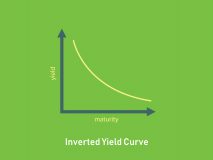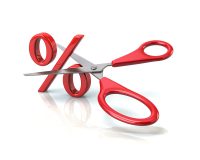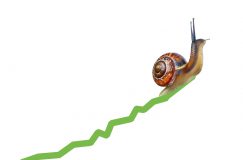By The Spy on
April 30, 2019
You’ve probably seen the U.S. and China wrangling over trade in the news lately. Hanging in the balance is a major trade agreement—if they settle their differences (and they eventually will). Such an agreement would be historic. It would finally end their trade war while chipping away at America’s $419+ billion trade deficit (on goods) with China. A deal could...
read more
By The Spy on
April 23, 2019
The gap between the best 5-year fixed rates and best variable rates is the smallest its been in two and a half years. We’re talking less than 1/8th of a percentage point between them. Depending on the equity a borrower has, folks can even find 5-year fixed rates that are below the best variable rates. What’s Provoking It One reason...
read more
By The Spy on
April 1, 2019
Bond yields have found at least a near-term bottom after four-and-a-half months of declines. That means Canadian fixed mortgage rates may also have found a bottom…for now. Here’s a quick look at the lowesteffective 5-year fixed rates, and how far they’ve fallen since the peak last fall: Insured: 2.79% -44 bps Insurable (80% LTV or less): 2.93% -40 bps Uninsured:...
read more
By The Spy on
March 24, 2019
The Canadian yield curve has officially inverted and that’s bearish for mortgage rates. An “inverted yield curve” (in this context) means that the interest rate on almost every Canadian government bond is now below the Bank of Canada’s 1.75% overnight rate. That’s pretty rare. Why it Matters Inverted yield curves are a danger sign. In a normal economy investors like...
read more
By The Spy on
March 18, 2019
Canadian interest rates are still sliding. On Monday, Canada’s5-year bond yield—which drives fixed mortgage rates—closed in the 1.50% range, something it hasn’t done since November 2017. Dozens of lenders have trimmed fixed rates in recent days as yields keep tumbling. And big banks are not excepted. With skidding home sales, weakening property values and mortgage growth near multi-decade lows, the...
read more
By The Spy on
February 3, 2019
BMO Capital Markets has taken a “scalpel to [its] Canadian rate forecast,” as itdescribesit. The company now projects just one Bank of Canada rate increase in all of 2019. By comparison, financial traders peg the odds of a rate hike this year at just 49%. That’s according to implied probabilities in the bond market, as tracked by Reuters. BMO is...
read more
By The Spy on
January 18, 2019
The talk of the market this month is how traders are pricing in a decelerating economy and lower interest rates — to which Scotiabank Economics replies, think again. December’s selloffs in oil and equities and incessant chatter about yield curve inversion got many thinking we’re headed towards a rate cut by 2020. But in a recent report, Scotia challenged that...
read more
By The Spy on
January 10, 2019
The Bank of Canada maintains that rates are going higher. Meanwhile, it just slashed Canada’s 2019 growth forecast by a not-so-paltry 0.40 percentage points. Does that strike anyone as a mite bit inconsistent? The Bank is now calling for just a 1.7% GDP gain this year. That’s pretty darned feeble. Bonsai trees and glaciers grow faster than 1.7% a year....
read more
By The Spy on
January 3, 2019
Recessionary warnings from Apple and China, weak U.S. manufacturing data and a plunging stock market accelerated the market rate collapse today. Canada’s 5-year bond yield almost touched 1.75%, where it hasn’t been since 2017. The last time yields fell this fast was March 2015, while the Bank of Canada was in the midst of cutting rates. This is not your...
read more
By The Spy on
December 14, 2018
Canada’s debt situation appears to be getting better…if you just look at mortgages. But something sinister lurks beneath the surface. And it’s made of plastic. Indebtedness has been outgrowing incomes in this country, despite stringent new mortgage restrictions.Canadians now owe $1.78 in credit market debt for every dollar of household disposable income, just under the record high. And we keep...
read more
 log in
log in









